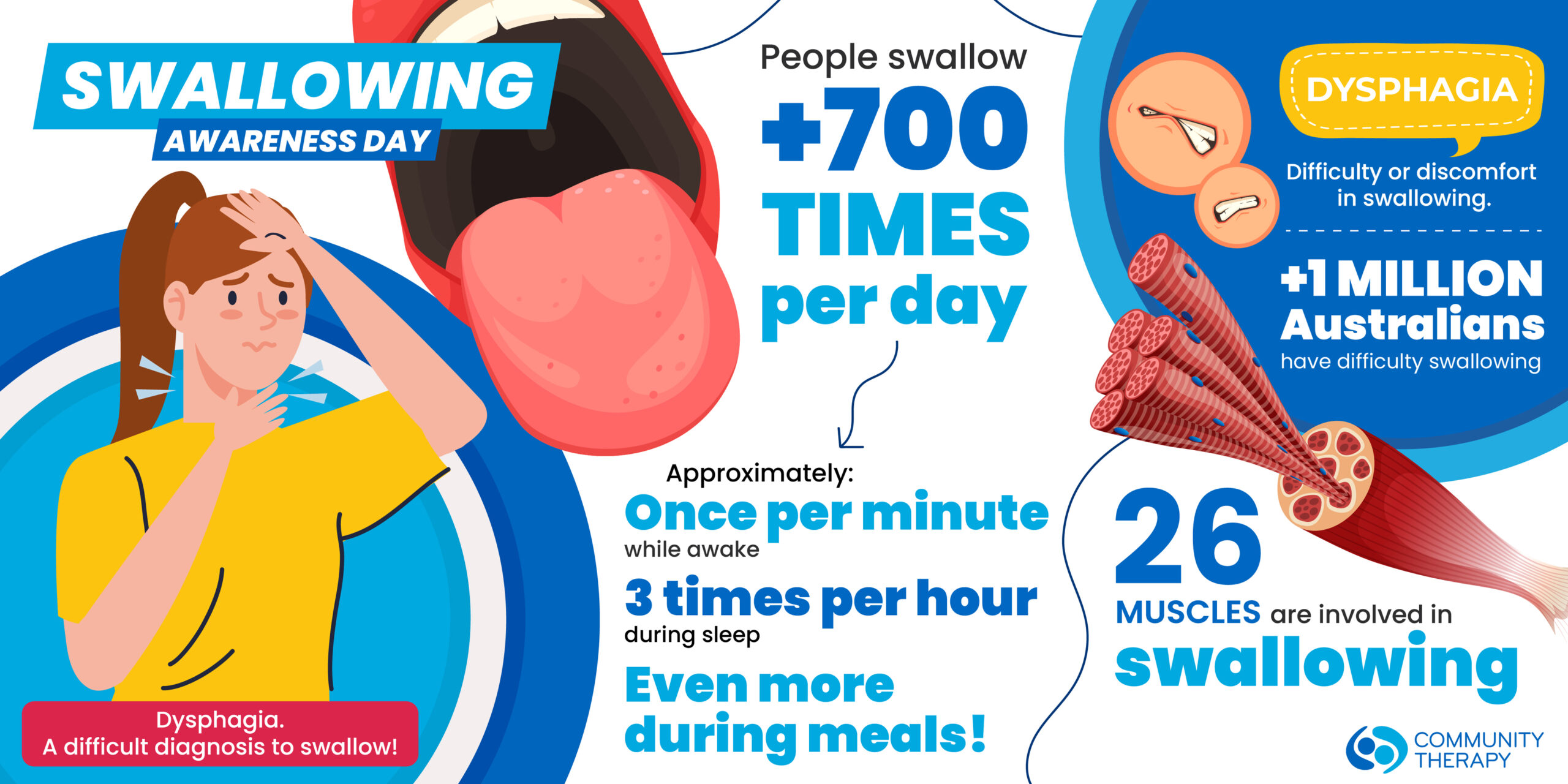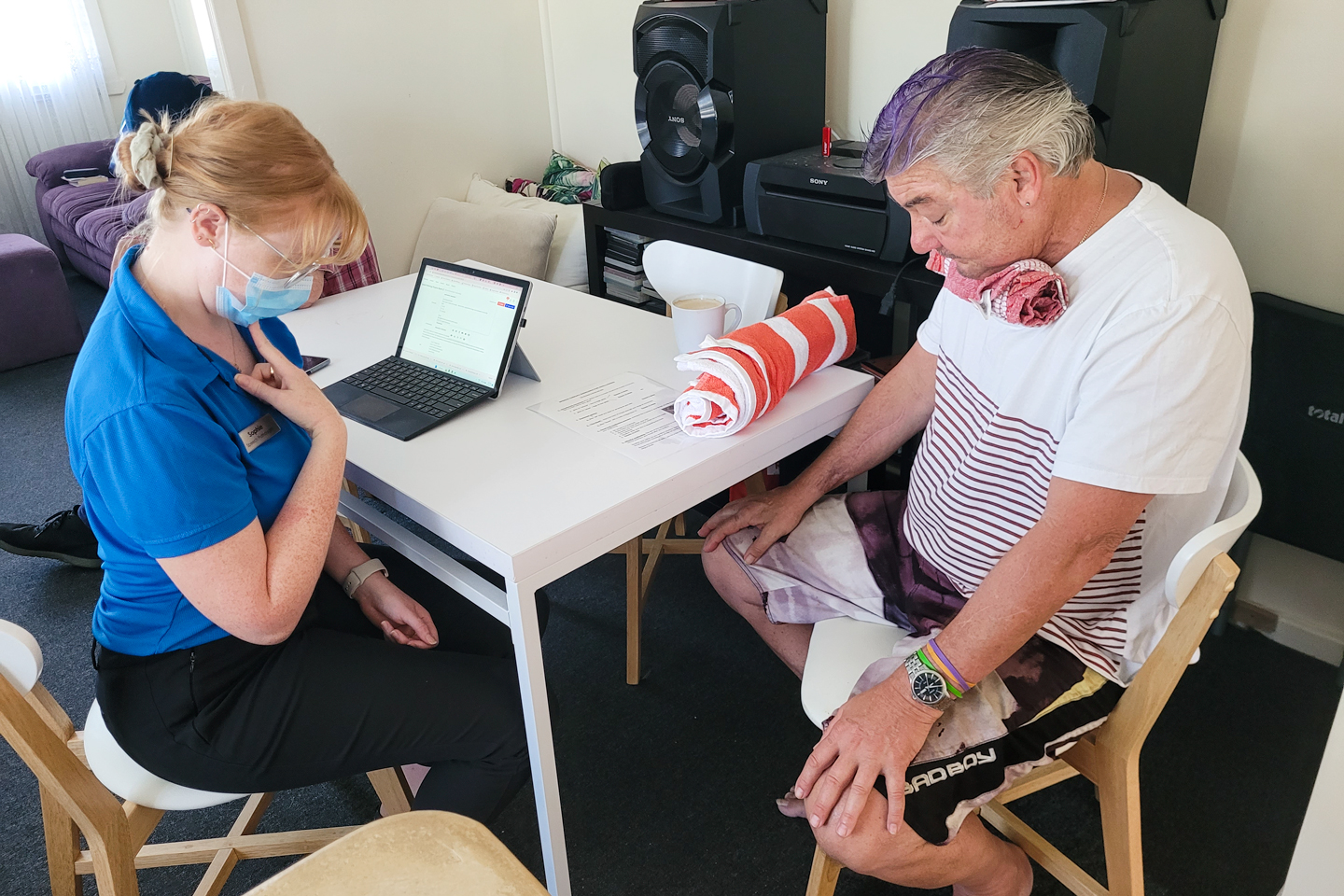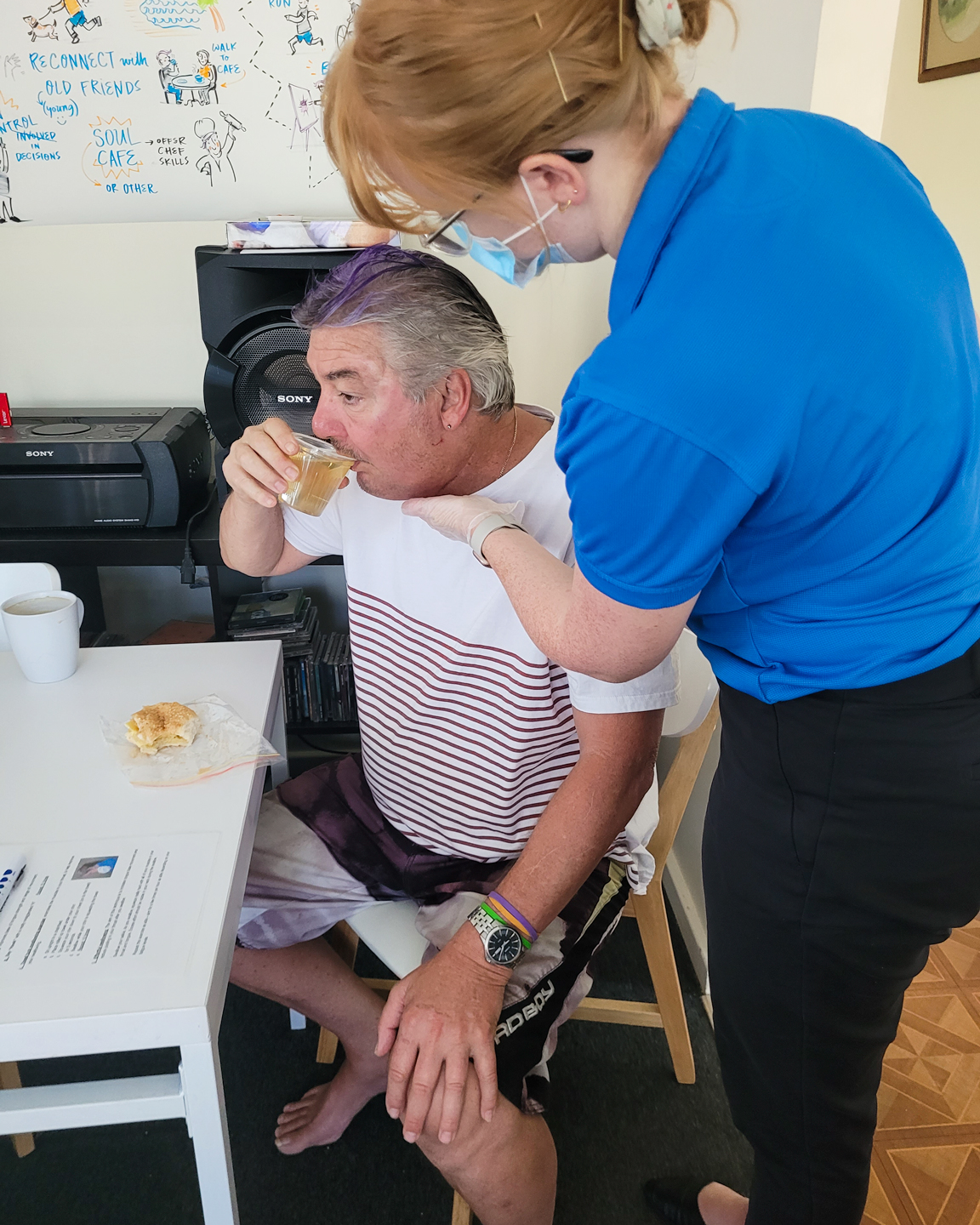Speech Pathology Services
Humans swallow at least 700 times a day: around three times an hour during sleep, once per minute while awake and even more often during meals.
We swallow food, liquids, medicines and saliva. People who have trouble swallowing can be at risk of poor nutrition, dehydration and respiratory concerns.
Speech Pathologist’s assess and care for people living with swallowing difficulties. A Speech Pathologist may recommend changes to a person’s food and fluid consistencies to decrease any risks associated with eating and drinking. Speech pathologists will also provide education regarding safe swallowing strategies and in some cases can provide swallowing rehabilitation exercise programs to improve swallow function. We are able to provide formal Mealtime Management Plans for you if you require one.
Speech Pathologists work in collaboration with General Practitioners, Neurologists, Otolaryngologists and Respiratory physicians to manage dysphagia.

Managing Dysphagia
Dysphagia poses significant challenges to individuals’ health and quality of life, but timely intervention by a Speech Pathologist can help. By recognising the signs of dysphagia, understanding its consequences, and leveraging specialised assessment and intervention techniques, Speech Pathologists empower individuals with swallowing difficulties to regain confidence and independence in eating and drinking.
If you or someone you know is experiencing symptoms suggestive of dysphagia, seeking a referral to a Speech Pathologist can be the crucial first step toward safer swallowing, more effective management and improved quality of life.

Customised Intervention Strategies
Upon referral, a Speech Pathologist conducts a comprehensive assessment of the individual’s eating and drinking abilities. This assessment may include observing mealtime behaviors, evaluating the types of food and drink consumed, and assessing oral motor function.
Occasionally when a Speech Pathologist is unable to gain sufficient information about the swallow function from their assessment in the home, or if the swallowing issue is particularly complex, they will refer an individual with a swallowing concern for a Videofluroscopic Swallowing Study (VFSS). This study provides additional information about the anatomy and physiology of the swallow and helps guide the Speech Pathologist’s intervention in the community.
Based on the assessment findings, Speech Pathologists develop personalised intervention plans tailored to the individual’s specific needs. These may include modifying food and drink textures to make swallowing safer and more manageable. For instance, thickening liquids or softening solid foods can assist individuals with varying degrees of dysphagia. Speech Pathologists can also trial adaptive dysphagia equipment including specific drinking cups and straws which can be utilised to help make swallowing safer and more comfortable for people with swallowing impairments.
Speech Pathologists regularly review swallowing function and recommendations following the initial assessment as is required. This is to ensure that intervention is reflective of an individual’s specific needs and that any changes to recommendations can be made if swallowing function changes over time.


Rehabilitation and Swallowing Techniques
In addition to dietary / fluid texture modifications, education and safe swallowing strategies, Speech Pathologists may prescribe rehabilitative exercises and swallowing techniques to improve dysphagia.
These exercises aim to strengthen the muscles involved in swallowing and enhance coordination between the mouth and throat. Training around compensatory strategies, postural adjustments and pacing techniques with oral intake can also optimise swallowing safety and efficiency.


